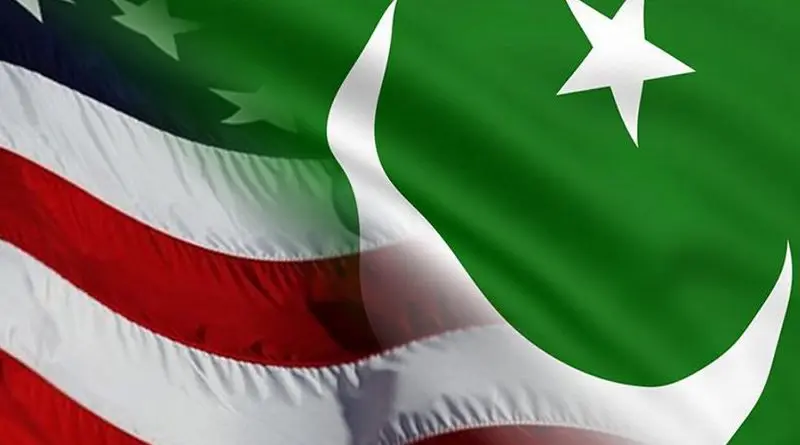CENTCOM Inquiry: Would It Heal Pakistani Wounds And Repair Damaged Relations? – Analysis
By Murad Khan
Pakistan has rejected the US Central Command’s (CENTCOM) investigation into the NATO strike that killed 24 Pakistani soldiers at Salala border outpost on Nov 26, 2011, further damaging the already tenuous relationship between the two countries and which could potentially create serious negative repercussions for the international forces that need to continue Operation Enduring Freedom. Considering the present tension, the Obama administration should consider a major policy shift towards Pakistan and immediately repair this frail, but very crucial relationship to secure lasting peace in the region.
Ongoing political turmoil in Pakistan in the wake of the MEMOGATE scandal has made it more challenging for the US to restore a workable partnership with Pakistan. Undoubtedly, the US may not enjoy the same flexibility of the partnership with Pakistan, which they had before the NATO strike. However, the codependence of the US and Pakistan cannot be ruled out. It is imperative for both countries to find a workable partnership that helps continue the ongoing war against extremists.
Pakistani opposition political parties are tapping into the prevailing anti-American sentiments and proactively utilizing the NATO strike and MEMOGATE scandal to the best of their advantage. The US certainly should abstain itself from the MEMOGATE scandal and in turn concentrate more on fixing the damaged relationship with Pakistan.
The US has been unsuccessful in understanding the dynamics of the Pakistan-US relationship while devising its foreign policy towards Pakistan. The US has always relied on the powerful Pakistan military and the ruling elite as their main partners in its foreign policy objectives towards this volatile South Asian country. The US has never effectively reached out to the masses of Pakistan, which are in a better position to help the US to accomplish its desired regional objectives. The military has already abandoned the US due to increased anti-American sentiments in Pakistan and growing discontent within the ranks against their leadership.
At present, the military leadership is proactively engaged in fighting its own war of survival to regain their lost trust with the masses and address the vital issue of discontent within their ranks. On the other hand, the weak political government of Mr. Zardari is struggling to hold on to power. The government is not in a position to continue its support of US policies in the region. Presently, the government is dancing to the military’s tunes that are firing shots from behind the scenes.
In the current scenario, if the US succeeds in repairing the relationship with Pakistan that could mean never allowing the US flexibility to continue an aggressive and US-centric policies in the region. The government of Pakistan has already proposed imposing a transit tax on convoys of non-lethal supplies passing through Pakistan to the NATO forces operating in Afghanistan. This decision will add tens or perhaps hundreds of millions of dollars a year to the cost of the NATO expenditure. The controversial drone strategy of the CIA that conducted hundreds of targeted attacks within Pakistan cannot continue with the same cadence. Also, the renewed relationship might restrict the heavy presence of the US intelligence operators on ground in Pakistan.
In short, the repaired partnership between the two countries will be on Pakistan’s terms, thus, making it more strenuous for the US to pursue its desired policy objectives in the region.
To deal with the current crisis, the US needs to understand the power dynamics in Pakistan. The famous TROIKA — i.e. Army, President, and the Prime Minister — that used to rule Pakistan is no more viable. With the lawyers’ movement in 2007 that compelled the former president, Pervez Musharraf, to leave his office and the onslaught of free media this has greatly changed the power dynamics in Pakistan. While dealing with Pakistan along with the famous TROIKA, the importance of Judiciary and the free media cannot be ruled out.
Considering the severity of the attack and the prevailing anger in Pakistani masses against the US, the Obama administration must show magnanimity in their approach towards Pakistan by giving a public apology to the people of Pakistan and to give an assurance that such incidents will not be repeated.
Also, the US must seriously address Pakistan’s genuine concerns in Afghanistan and allow them to play a key leading role along other regional players towards the peaceful resolution of the issue. This would greatly help in defusing the present public anger against the U.S. and give some breathing space for the political and the military leadership to resume a workable partnership with the US. Failing to do so could have long-term negative consequences for the Pakistan-U.S. relationship, stability in Afghanistan, and the future of the region beyond 2014.

